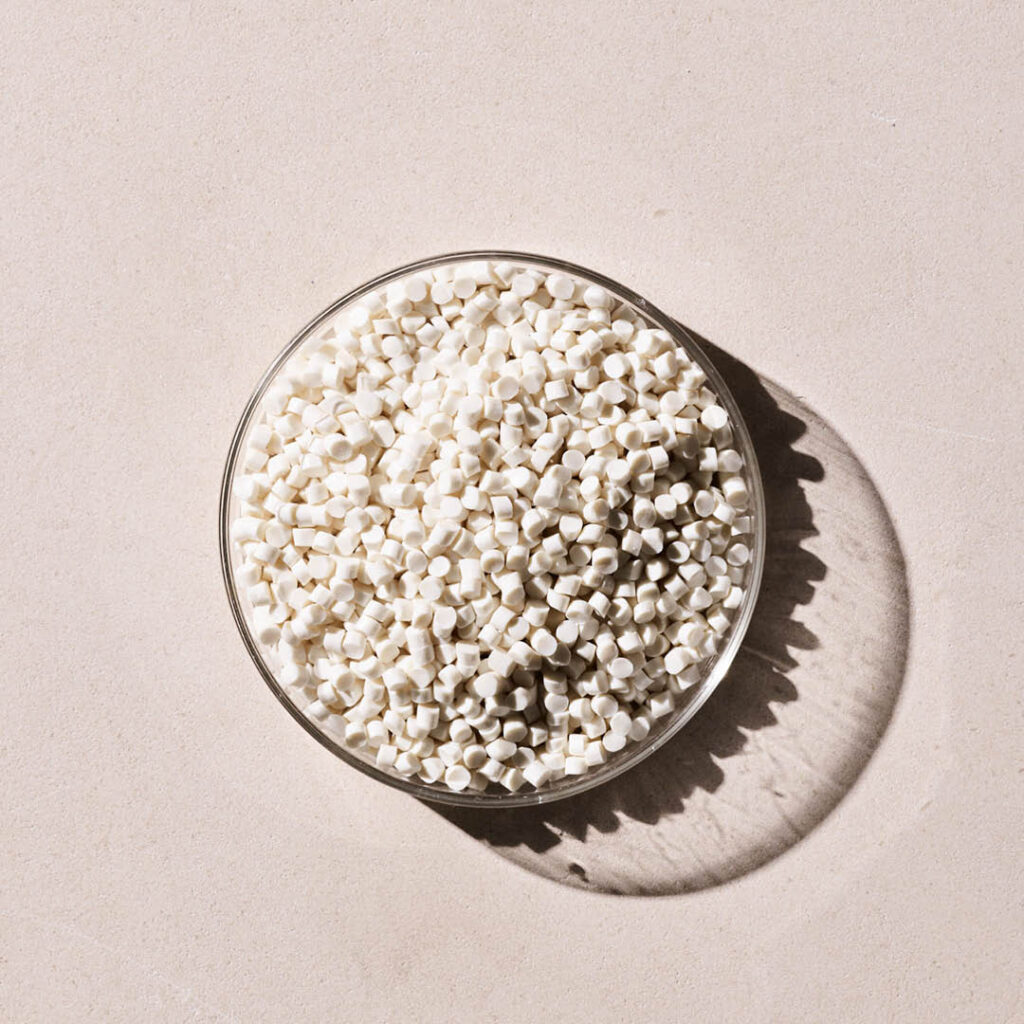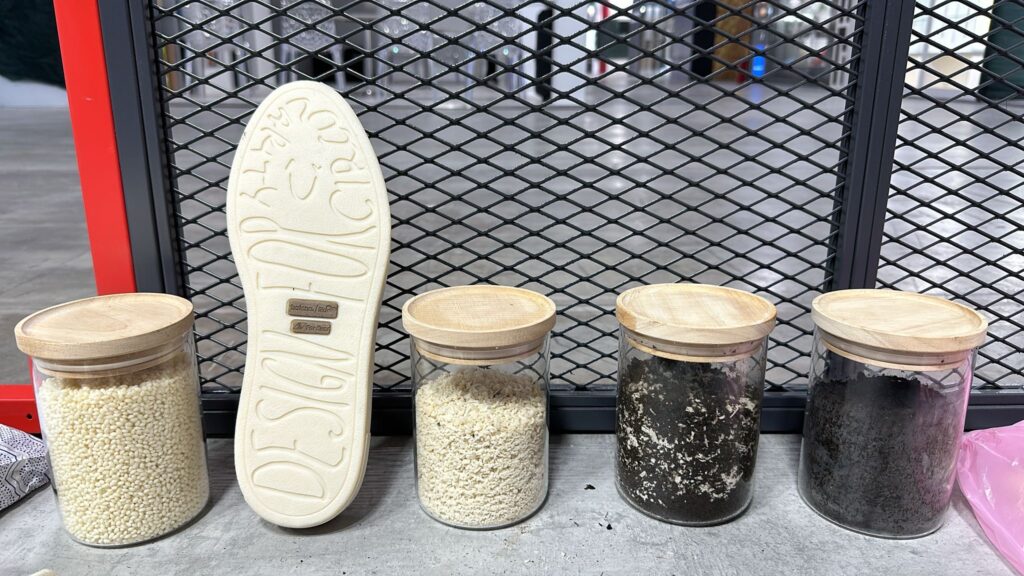Material science company Balena is one of a number of innovators working to reduce the footwear sector’s carbon footprint. With its new scalable, circular, and compostable soles collaboration with For Ever, it is, quite literally, taking the footwear industry one giant step closer to that goal.
Balena founder David Roubach says his company’s mission is clear: to stamp out plastic-based materials in footwear. Balena leverages injection molding, extrusion, and 3D printing technologies, putting it at the forefront of sustainable materials innovation. In 2022, it debuted BioCir Slides, made of its proprietary, 100 percent biodegradable plastic. Last year, it debuted biodegradable 3D printed shoes with designer Kitty Shukman. And earlier this year it announced a partnership with Vivobarefoot to develop fully circular, biomaterials-based shoes. Now, in a new collaboration with For Ever is a partnership that could help redefine the footwear category as we know it — by creating shoes, or at least, shoe parts, that are completely biodegradable and compostable. And, Balena says, they can do it at scale.
The collaborative product between Balena and For Ever is the BioCirflex Compostable Soles, which aligns with Balena’s ambitious circularity targets. Roubach highlighted the synergy between the companies, telling Ethos, “The introduction of BioCirflex Footwear Soles aligns perfectly with For Ever’s long-term sustainability goals.” This alignment underscores the partnership’s potential to effect change within the footwear industry. There’s a significant need; MIT researchers found that the average pair of new running shoes produces about 14 kilograms of CO2, adding up to more than 4 million metric tonnes of CO2 every year just from athletic footwear — more than the emissions from the popular tourist destination the Bahamas.

According to Roubach, the genesis of this project with For Ever and the development of the BioCirflex Compostable Soles reflects a “shared commitment to sustainability and innovation,” he told Ethos via email. The essence of the BioCirflex innovation lies in its unique properties, Roubach says. “BioCirflex stands out in the footwear industry due to its advanced, flexible, fully compostable, and recyclable material,” he said. The forward-thinking tech behind the material not only challenges the status quo of footwear production but also offers a viable path toward reducing the industry’s environmental impact via a circular solution.
“These soles follow a responsible disposal path, including post-industrial and post-consumer recycling, as well as biodegradation in industrial compost facilities, leaving no adverse impact on compost quality or the environment,” Roubach says. “We collaborate with industrial compost facilities globally to guarantee the complete decomposition and biodegradation of soles made from this material, ensuring a fully circular business model essential for sustainable development.”
This isn’t the first effort to bring compostability to footwear. Numerous shoe manufacturers have introduced shoes or shoe parts they say can biodegrade. Blueview says it developed the world’s first truly biodegradable shoe. OAT Shoes also makes the same claim. So does Italy’s NOAH.

But it’s not a matter of being first, according to Balena. It’s being scalable. And Roubach says that what makes this partnership truly unique is the utilization of For Ever’s conventional manufacturing expertise and machinery, “which are already optimized for producing plastics,” Roubach said. This innovative approach leverages existing infrastructure to facilitate the adoption of BioCirflex materials in mass production — something the three other ‘world’s first’ shoes aren’t yet offering.
“We’re not reinventing the wheel here,” Roubach says, rather, the companies are leveraging existing infrastructure by substituting their innovative material for traditional TPU (thermoplastic polyurethane). “Our material isn’t just a one-off prototype; it’s backed by a sole manufacturer with a proven track record, ensuring consistent quality and reliability as we ramp up production. We are poised to commercialize not only this specific model but also other models that brands specifically require. This collaboration allows us to offer a comprehensive solution for brands looking to integrate sustainable materials into their footwear lines, further accelerating our journey towards mass-market adoption and circularity in the industry.”

The environmental advantages of BioCirflex Compostable Soles are significant, offering a solution to one of the industry’s most pressing challenges: its reliance on non-renewable resources. “The end-of-life disposal process for BioCirflex Compostable Soles through industrial composting ensures minimal environmental impact,” Roubach said, emphasizing the material’s ability to biodegrade safely back into the soil.
Moreover, Roubach says the scalability and versatility of BioCirflex material enable its integration into various footwear designs and production processes, catering to the diverse needs of consumers and manufacturers alike. “This adaptability positions BioCirflex material as a viable solution for both large-scale footwear production and niche markets, further expanding its potential impact on the global footwear industry.” And, he says, from an environmental standpoint, BioCirflex Compostable soles offer significant benefits in reducing the industry’s ecological footprint by “mitigating the environmental harm associated with conventional footwear production, including the extraction of fossil fuels and the accumulation of non-biodegradable waste.”
Related on Ethos:


